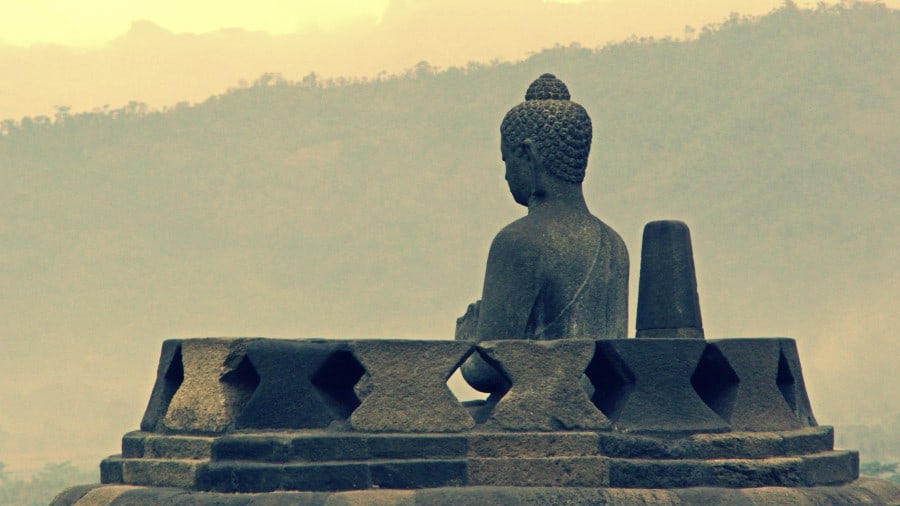Bali, a small corner of Indonesia, has captivated the imagination of travelers for decades. More than just an island, it is a state of mind, a place where spirituality and worldly life intertwine in a perpetual dance.
The Essence of Bali: Temples, Tradition and Culture
It is a place where the ancestral meets the contemporary and where legends manifest in art and architecture.
Upon landing at Ngurah Rai International Airport, the first image that strikes you is the majestic statue of Bhima, the epic hero from the Mahabharata. This sculpture, standing in flawless alabaster, is a testament to Bali’s deep connection with its mythological heritage.
The artistic details adorning this figure and other monuments on the island are not mere decorations. In Bali, art is an expression of faith and dedication. Artisans breathe life into each piece, conveying stories, beliefs and traditions.
Beyond its rich artistic tradition, religion and spirituality define life in Bali. Unlike many contemporary islands, where capitalism may dictate the pace, Bali maintains a balance between faith and modernity.
Bali Beyond Tourism: Understanding Its Essence and Spirituality
Kuta: Between Western Comforts and a History of Resistance
A testament to this is the architectural regulation that prohibits buildings taller than Hindu temples. This rule, more than a mere guideline, is a constant reminder of the sacredness and spirituality guiding the Balinese. However, travelers must be patient.
The true essence of Bali does not reveal itself immediately. After hours of travel and facing a warm climate, it’s easy to be seduced by the more superficial tourist offerings. According to recent data, millions of tourists have descended on Bali, drawn by its worldwide fame and undeniable beauty.
Areas like Kuta offer a variety of experiences, from luxurious hotels to affordable massages and culinary delights.
However, Kuta, with its vibrant nightlife and tourist offerings, is only one facet of Bali. While it provides Western comforts, it also reflects a tumultuous history, marked by colonization and struggles for independence. Behind every commercial corner, there are stories of resistance and adaptation.
Beyond Tourism: The Rich History and Spirituality of Bali
Bali, an Island of Contrasts: Between Ancestral Traditions and Modernity
For those willing to explore beyond the obvious, Bali offers hidden worlds. Temples nestled in jungles, pristine beaches away from the crowds and villages where ancestral traditions are still alive. These less-traveled places are where the spirit of Bali shines brightest.
Bali’s history is rich and complex. From the influence of the Majapahit empire to Dutch domination, each chapter has left an indelible mark on its culture and people. Yet, even in the face of adversity and change, Bali has preserved its essence.
Tourism, although it has transformed the island, has also provided opportunities and allowed its culture to be shared with the world.
Bali is an island of contrasts. It is a place where the ancient and the new coexist, where spirituality guides daily life and where visitors can embark on a mystical journey that goes beyond geography. It is a destination that, once experienced, leaves an eternal mark on the soul of the traveler.





